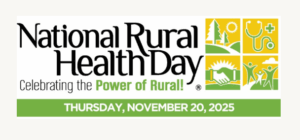October 16, 2025

Webinar: Unlock the Power of Quick AI Wins, October 28
Health system leaders want AI solutions that are safe, scalable, and proven. But too often, long-term transformation plans stall because they don’t show near-term results.
This webinar shows how forward-thinking leaders are flipping that script – using low-risk, high-impact use cases like conversational AI to improve consumer-facing operations, demonstrate quick winds, drive operational ROI, and build internal momentum.
Industry experts share proven implementation strategies for prioritizing consumer facing touchpoints, accelerating AI governance processes, and quantifying measurable ROI.
Learn from industry leaders:
- Case-based examples of operational AI delivering measurable impact across operational efficiency, staff productivity, and patient satisfaction,
- A practical framework for identifying which operational touchpoints to target first for maximum impact,
- How to deploy governance models that speed up AI rollout without increasing risk, and
- Why smart HER integration strategies are key to long-term success.
Cost: Free
When: Tuesday, October 28, 12:00 p.m. – 1:00 p.m.
Click Here to Register

